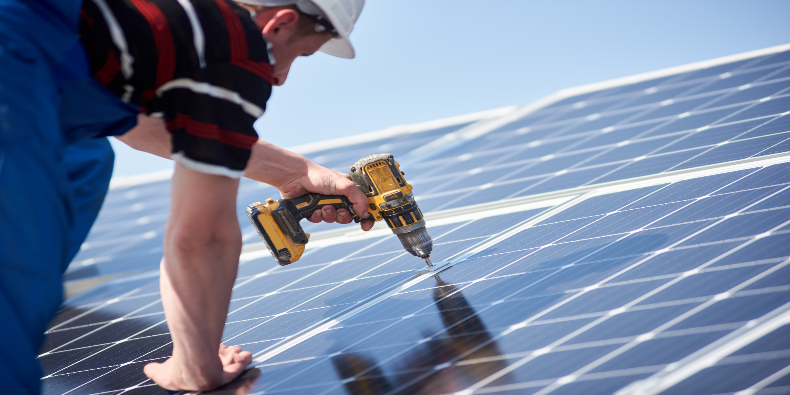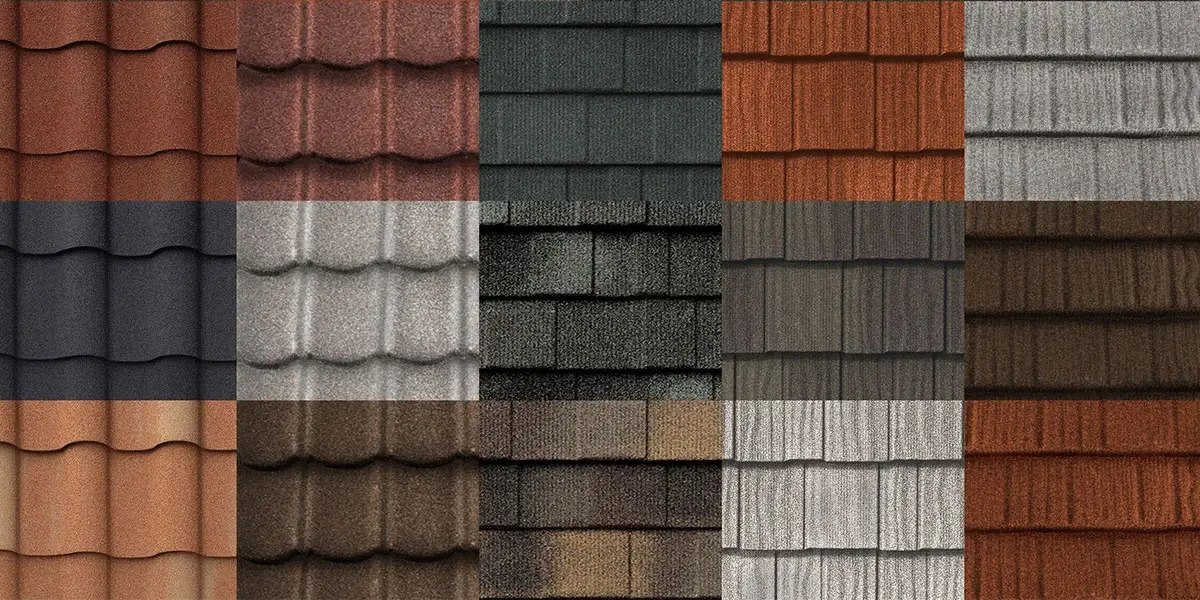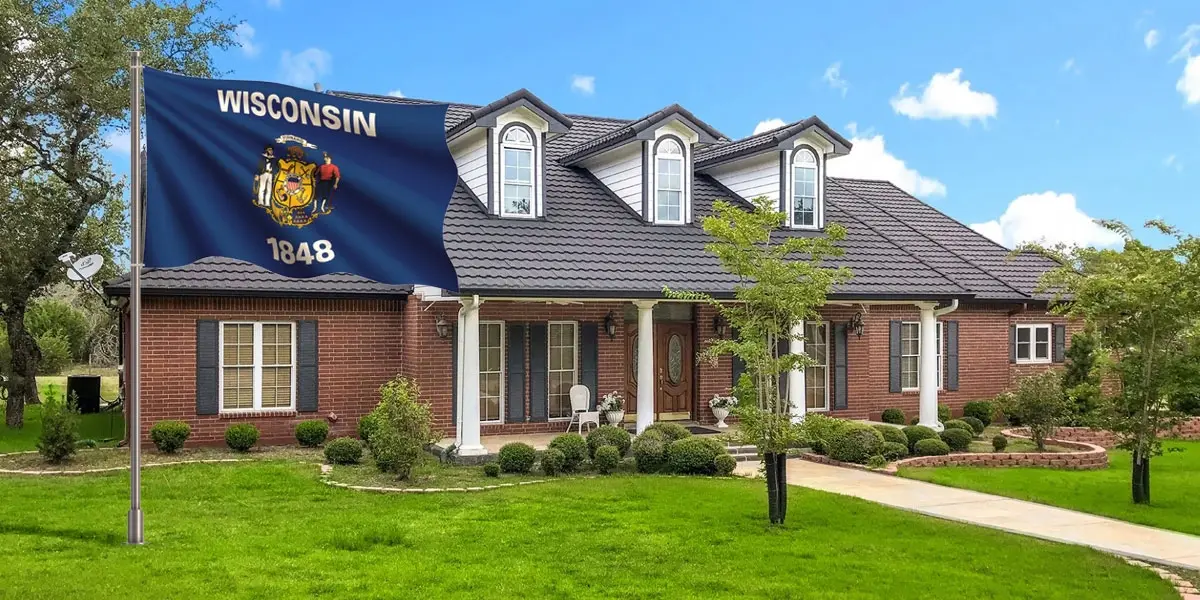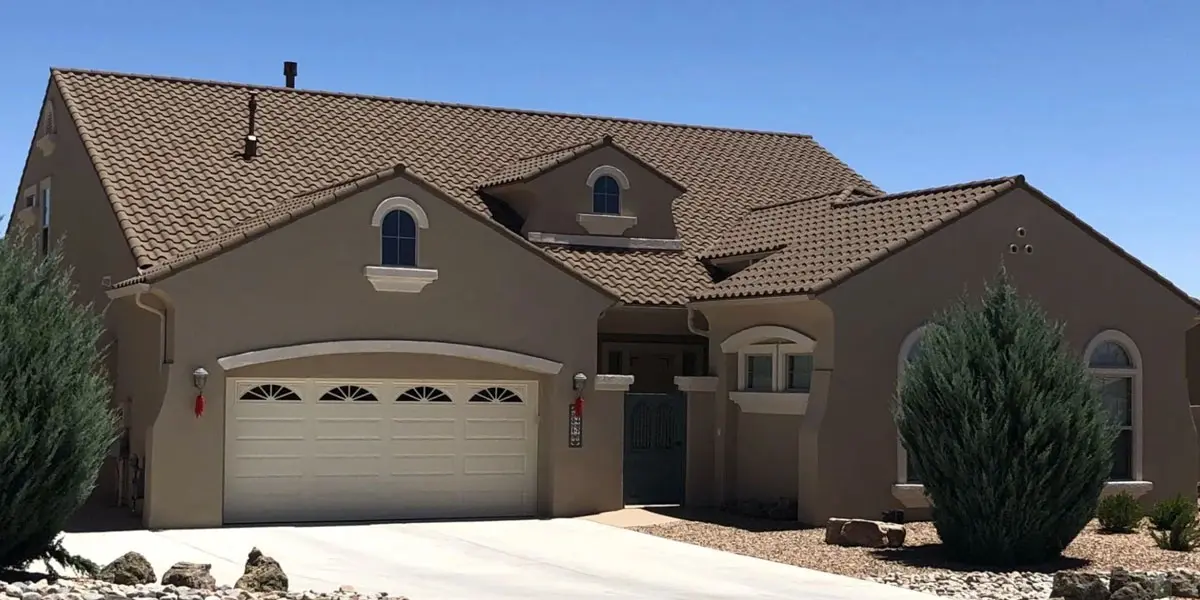In 2018, the California Energy Commission approved building energy efficiency standards requiring the installation of solar photovoltaic (PV) systems on all new residential construction projects.
Known as the California Solar Mandate, the solar requirement aims to curb pollution, reduce the number of homes that rely on natural gas and promote clean energy sources.
Furthermore, the mandate supports the state's commitment to generate 50% of its electricity from renewable energy sources by 2030.
While it’s easy to understand the benefits of solar energy, the California Solar Mandate can be a bit confusing at times, which is why we created this guide.
Here’s what homeowners in the golden state need to know about the California Solar Mandate, including:
- How to determine if the California Solar Mandate impacts your home.
- Energy requirements of the California Solar Mandate.
- 3 things homeowners need to know about roofing before installing solar.
How to Determine if the California Solar Mandate Impacts Your Home
The California Solar Mandate went into effect on January 1, 2020. The mandate requires that all new residential construction projects have solar photovoltaic (PV) systems installed. This includes single-family homes, condominiums and apartment buildings less than three stories high.
There are some exceptions, however.
The California Solar Mandate does not apply to residential properties if:
- The roof is too small to accommodate solar panels.
- The roof is in a heavily shaded area or will not get sufficient sunlight.
- The home has access to a community solar system.
Homes built before 2020 do not need to take any action and are not required to install solar, unless the home undergoes a major renovation. In the case of a major renovation, homeowners must add a solar system to the home in addition to the planned renovations.
Energy Requirements of the California Solar Mandate
The most important component of the California Solar Mandate is that solar systems must be large enough to meet the home’s annual energy needs. Since new homes have not been previously occupied, annual energy needs are calculated based on:
- Which part of California the home is located in.
- The square footage of the home.
It’s important to note that a battery storage system can reduce the amount of energy a solar system requires by up to 40%. The amount is so significant that the mandate allows homes with battery storage systems of 7.5kWh or more to reduce the required size of their solar system by 25%.
3 Things Homeowners Need to Know About Roofing Before Installing Solar Panels
Whether you're building a new home or looking to install solar on an existing home, it’s critical to understand how the lifespan, weight and type of roof you have can impact solar installations.
1. Lifespan
Homeowners have a range of roofing materials to choose from. However, each type of roofing material has a different level of durability and longevity that need to be considered before installing solar panels.
For example, asphalt shingles need to be replaced as often as every 12 years. Solar panels need to be replaced, on average, about every 25 years. The long lifespan of a solar system creates a major problem when installed on asphalt shingle roofs.
Since the average solar system lasts approximately 25 years, an asphalt shingle roof will likely need replacement long before the solar system. This means that the entire solar system will need to be removed and re-installed on the roof to accommodate a roof replacement.
Metal roofing, on the other hand, is one of the longest-lasting roofing materials on the market and lasts two to three times longer than asphalt shingles.
This is one of many reasons that metal roofing is often the recommended roofing material for solar panel installations, but you’ll always want to consult with a reputable builder who can advise you on the best materials and installation methods for your home.
2. Weight
Asphalt shingles cause another issue with solar when it comes to weight. Solar systems are heavy. When installed over a roofing material that is also heavy, such as asphalt shingles, additional construction may be required to support their combined weight.
Metal roofing, on the other hand, is one of the lightest roofing materials on the market. At just 1.4 to 1.6 pounds per square foot, metal roofs can support the weight of an entire solar panel system without requiring reinforcement of the roof deck.
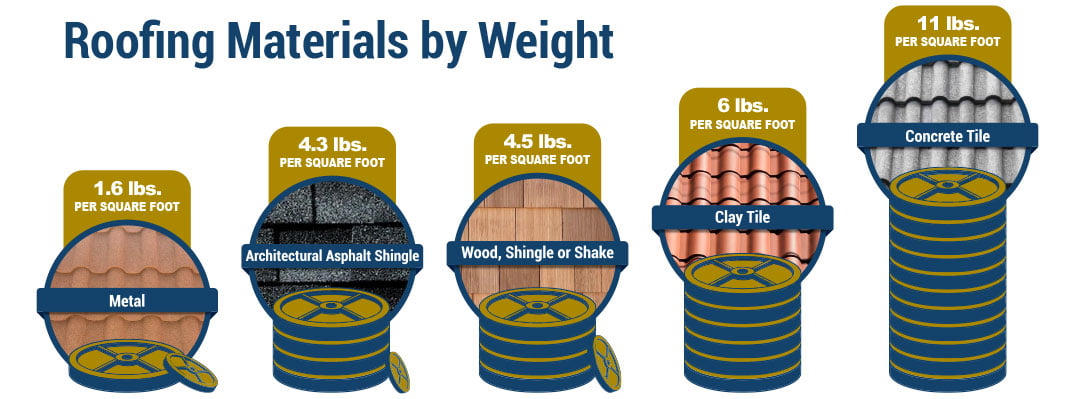
Additionally, if your roof is old or damaged, a roof replacement may be required to support the weight of solar panels. If you’re concerned about the condition of your existing roof, it’s always a good idea to have a professional roof inspection before installing solar.
3. Type of Roof
The California Solar Mandate was added to Title 24 of the California Code of Regulations. Title 24 was implemented in 1978 to mitigate air quality issues and stressed power grids. The requirements of Title 24 require California residents to meet minimum energy efficiency standards in new and altered buildings. The regulations cover a broad range of building codes, including roofing. In addition to requiring the installation of solar panels, Title 24 requires homeowners in certain regions to use roofing materials that have been certified as “cool roofs.” You can learn more about Title 24 and how it impacts the type of roof California residents have in this article.
About DECRA Metal Roofing
As the original stone-coated metal roofing manufacturer since 1957, DECRA products have set the industry standard for durability, longevity and style. Manufactured at our facility in Corona, California, all products are tested above and beyond the requirements to ensure the quality that DECRA is known for is present in every metal roofing panel we produce.
Ready to see and feel the DECRA difference? Click here to order a free sample.

